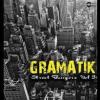A week after the 7 March nation-wide blackout, banks in most of Venezuela have reopened to allow customers to collect cash from ATMs from 9AM to 2PM, with long queues of people waiting along sidewalks to get what in most cases will be a daily maximum withdrawal of a mere 500-1,000 bolivares (15-30 US cents). Today was also the first working day in a week in Venezuela, while schools are expected to reopen next week. Subway services resumed with some hiccups in Caracas. Water service has returned to most of the capital, but is being strictly rationed. Many states in western and northern Venezuela (Vargas, Merida, Zulia, Tachira, Nueva Esparta) have suffered new power blackouts during the day, as have some districts of Caracas.
5 people lost their lives in Venezuela during the protests of the last few days and NGO Foro Penal says that over 300 were arrested during the week-long blackout, 124 of them for protesting, that the number of political prisoners in the country has risen to 911 and that over 800 indigenous Pemon have fled to Brazil to escape persecution on the part of security forces and pro-government irregular armed groups in Bolivar state.
Gran Sabana residents shut themselves in their homes at dusk, when an informal curfew takes hold, as they hear sounds of explosions and clashes. Many adults and adolescents have been injured or wounded by teargas, pepper spray and even bullets. In the Simon Bolivar I and Concepcion communities the situation is much calmer and residents have been able to cross the border to Maicao, Colombia, to buy food items and ice to keep them from going bad. But all public institutions, including the local clinic, are still inoperative and the road between Concepcion and Maracaibo is dangerously littered with roadblocks manned by civilians asking for money to let cars through. Security forces have imposed a curfew after 10PM and in the last three days more than 30 young adults have been arrested at night by patrols, who then release them the following morning.
Still in Zulia, in Villa del Rosario, following the clashes of 12 March, order has been imposed through a strong military presence, but few shops are open, all under the protection of the National Bolivarian Guard, and gas has not been supplied for the past 20 days. Also in Machiques very few shops are open, even though the community was not affected by clashes or looting, but along the road to Maracaibo some indigenous Yupka have set up a roadblock to exact money or food from passing traffic. In the municipality of Mara, the communities of Carrasquero and Cuatro Bocas have been heavily militarized following the looting and arson incidents of the past days, many people are in detention and the road to Maracaibo is blocked at Santa Cruz de Mara by a civilian roadblock exacting a “toll” in food or money. Many residents resort to crossing into Maicao to find food.
According to data published today by the National Assembly, inflation in the month of February was just 53.7%, compared to almost 300% in January, on account of a dramatic contraction of consumption. The accumulated inflation for the first two months of 2019 stands at 348.2%, while the annualized rate since February 2018 is a staggering 2.3 million percent.
Bowing to US pressure, Indian energy and petrochemicals giant Reliance Industries has stopped buying oil from PDVSA and selling diluents to Venezuela’s state oil company. Caracas had been seeking to expand its exports to India to compensate the closure of the US market and sanctions against PDVSA.
The last OPEC Oil Market Monthly Bulletin puts PDVSA oil production in February at a historic low of 1.008 million barrels per day - a 142 million bpd, or 12%, decrease on January production, which translates into a 222 million dollar monthly fall in revenues.










